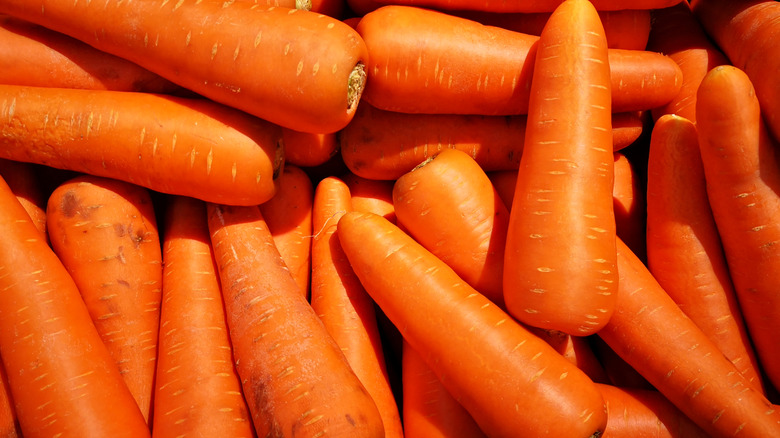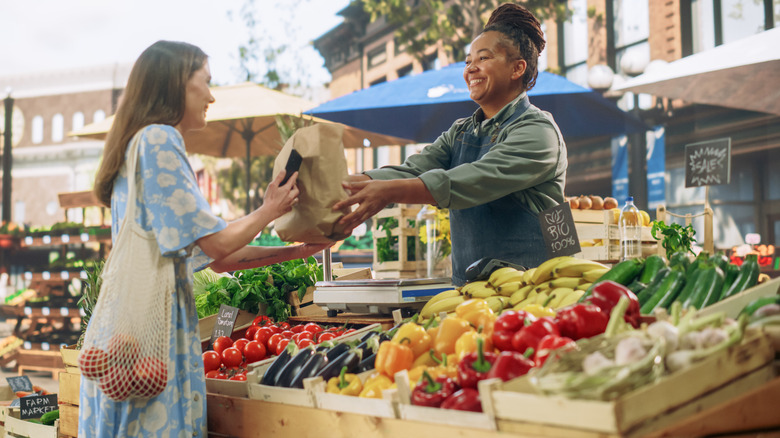Why Those Jumbo Sized Veggies At The Grocery Store Are Actually A Red Flag
Fruits have been getting bigger, and now so are vegetables — however, bigger is not necessarily better. While some vegetables can grow exceptionally large under natural conditions, vegetables are not meant to be gargantuan in size. It may seem like you're getting more by reaching for onions that are larger than softballs, or carrots wider than an average-sized thumb, especially if the produce is priced per unit rather than by the pound. But you're actually buying produce that's primarily composed of water held together by plant fibers. While most of us could probably benefit from more water and fiber in our diets, the water in jumbo-sized vegetables drowns out the flavor and other essential nutrients — some of the main reasons we eat our veggies!
So, what should you seek out when navigating the produce section for tasty vegetables? Well, for starters, don't overlook small to medium-sized veggies, as they are often the underdogs in the produce department. When shopping for commonly sought-after vegetables like carrots, for instance, medium-sized varieties tend to be sweeter and more tender. Additionally, purchasing carrots with frilly green stems means they were just picked within days. To find the best onions at the grocery store, look for an approximate two- to three-inch diameter on white, yellow, sweet, and red varieties. Although tomatoes are botanically considered fruit, since they're prepared in savory dishes like most vegetables — and are one of the main flavorless, jumbo culprits — it's worth noting that the smaller they are, in any variety, the more flavor they'll pack.
A better way to source great vegetables
Since the majority of the general population does their grocery shopping at chain supermarkets, finding smaller produce may be a understandable challenge. Farmers supplying the produce for these stores have to prioritize fulfilling the quantity and size in demand, versus the quality. Growing high quality veggies that are flavorful, appealing to consumers, nutritious, and affordably priced often takes longer, and doesn't lend a high enough yield, for large-scale grocery stores.
Shopping for veggies at your local farmer's market offers a stark contrast to a mainstream grocery store. The produce sold at farmers markets is often from smaller farms that grow veggies bursting with flavor. This is not only because they're grown to be appropriately-sized, but also because buying them closer to the source means they'll be fresh, and packed with nutrients and flavor. As a bonus, the produce will often be priced the same, if not better than supermarkets (especially if you're shopping at one of the most overpriced grocery store chains in the U.S.).
Alternatively, if shopping at a farmer's market isn't accessible, the organic section in the grocery store produce department can sometimes have vegetables that are comparable in quality to those found at the farmer's market. Organic produce tends to have a higher price point than conventional produce, so if this isn't feasible, searching for small to medium-sized conventional veggies will provide you with more flavor, and potentially more nutrients, than their jumbo counterparts.

